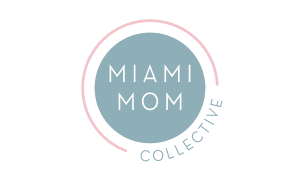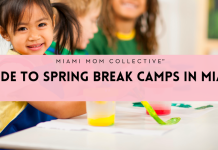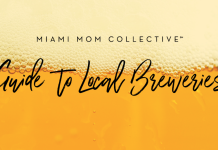What is neurodiversity? And how does it impact your experiences in motherhood?

Let’s discuss some terminology:
Neurodiversity
Neurodiversity is a term that means brain differences are naturally occurring variations in humans. The neurodiversity perspective sees brain differences rather than brain deficits. Instead of viewing differences as “disordered” or needing to be “cured,” a neurodiverse perspective sees differences as welcome variants of the human population. When we remember that brain differences are natural and welcome, it reduces stigma and increases acceptance. This definition is from www.Play-Spark.com‘s Neurodiversity 101: Advocacy in Action course.
Neurodivergent
Neurodivergent refers to having a brain that functions in ways that diverge from the societal standards of “normal.” (www.Play-Spark.com, Neurodiversity 101: Advocacy in Action)
Neurotypical
Neurotypical refers to having a style of brain functioning that falls within the dominant societal standards of “normal.” (www.Play-Spark.com, Neurodiversity 101: Advocacy in Action)
Neurodivergence
Neurodivergence is a broad term that can refer to several different diagnoses or symptoms. Some diagnoses that fall into neurodivergence are autism, dyslexia, ADHD, OCD, traumatic brain injury, epilepsy, and cerebral palsy. (www.Play-Spark.com, Neurodiversity 101: Advocacy in Action) Those with sensory processing disorders can also fall into neurodivergence, in addition to anxiety, depression, bipolar disorder, and highly emotional sensitivity to name some more. The number of these diagnoses has tripled in the last 50 years.
The Neurodiversity Movement
The Neurodiversity Movement emerged in the 1900s (health.harvard.edu). “It is a social rustic movement seeking equality, respect, inclusion, and civil rights for people with brain differences. The Neurodiversity Movement aims to embrace all neurodivergent individuals as welcome and equal members of society. To do so, we must begin to provide the neurodivergent population with the necessary and needed supports to participate as equal community members.”(www.Play-Spark.com, Neurodiversity 101: Advocacy in Action)
Neurodiversity Affirming
Neurodiversity affirming is when you support the neurodivergent’s strengths, unique abilities, and authenticity. A lack of awareness can cause the exclusion of people with neurodevelopment differences. Understanding and embracing neurodiversity in homes, communities, schools, healthcare settings, and workplaces can improve inclusivity for all people. (health.harvard.edu)

Interpreting Motherhood as a Neurodivergent
Neurodiverse people interpret life differently and perhaps more intensely.
Recently, as I have been educating myself to ensure that my approach as a speech-language pathologist is aligned with the neurodiversity-affirmative approach, I have realized that I, myself, am a neurodivergent. My differences are in that of attention, anxiety, depression, OCD, sensory processing, and highly emotional sensitivity. I am not sharing this information about myself for you to feel sympathy towards me, but to shed light on this neurodiversity movement and to create awareness. It could very well be that you may have more neurodivergent friends or family members than you may think you have. So what does this mean? I have brain differences, not deficits. I am not broken.
It wasn’t until I became a mother of two, that I really started noticing my differences and difficulties. Particularly, splitting my attention to both of their needs, multi-tasking, becoming overwhelmed and overstimulated easily when they both cry/scream/argue at the same time, difficulty breaking my routine, and time management. I can say that my definition of motherhood right now with a 5-year-old and 2-year-old is intense–beautiful and rewarding, but hard and intense.
It has been a process of learning to accept myself as a mother and to stop shaming myself for not being the mother I thought I was going to be.
To add to that, it has also been a process of learning to accept my children for who they are: strong characters and temperaments, highly emotionally sensitives, with different sensory processing needs. Then, when the meltdowns occur and when I am told by others, “Oh, they’re acting out because you just need to be more firm in your discipline,” or whatever, my immediate reaction was to agree… It’s me. I need to be fixed. And I’ll be honest. For a while there, I stopped showing up for myself and started believing it. Well, guess what? The answer is NO. It is THEIR storm, their strong emotions–NOT MINE. And I am not in control of that. It does NOT reflect my worth as a mother.
I am here to shake that thought out of your head like I did mine. Shake it off over and over again. And again and again. Show up for yourself. Be kind to yourself. I have to constantly keep reminding myself to treat myself the same way I would treat my neurodivergent clients–supporting my strengths, unique abilities, and authenticity. Likewise, I need to identify and support my children’s strengths, unique abilities, and authenticity. By doing so, you build trust and connection over compliance.
“I need to be the calm to their storm.”
The world would be a boring place if everyone was exactly the same. The world would be a boring place if we didn’t all have differences. Embrace the differences. Everyone interprets life differently. With that being said, be mindful when someone’s “hard” looks different than your “hard.” It doesn’t mean that their hard is less than yours. Motherhood is hard, period. The intensity and interpretations of it are what varies based on brain differences and how our brains are wired.
Now, I challenge you to get curious and BE KIND to everyone. ALL BRAINS ARE BEAUTIFUL. <3


















WOWZA, JACQUI! THANK YOU FOR WRITING THIS! I’m so lucky to know you and that brilliant brain of YOURS!
Thank you so much friend!!!!! <3
I have goosebumps…this is beautiful Jaqui. I can relate to so much of this and I so appreciate you writing this and sharing your experience this way to help others. Thank you!
Ahhhhhh thank you for sharing!! Hearing you say that you can relate to me is exactly why I am so vulnerable on here! <3 we are not alone.
Comments are closed.